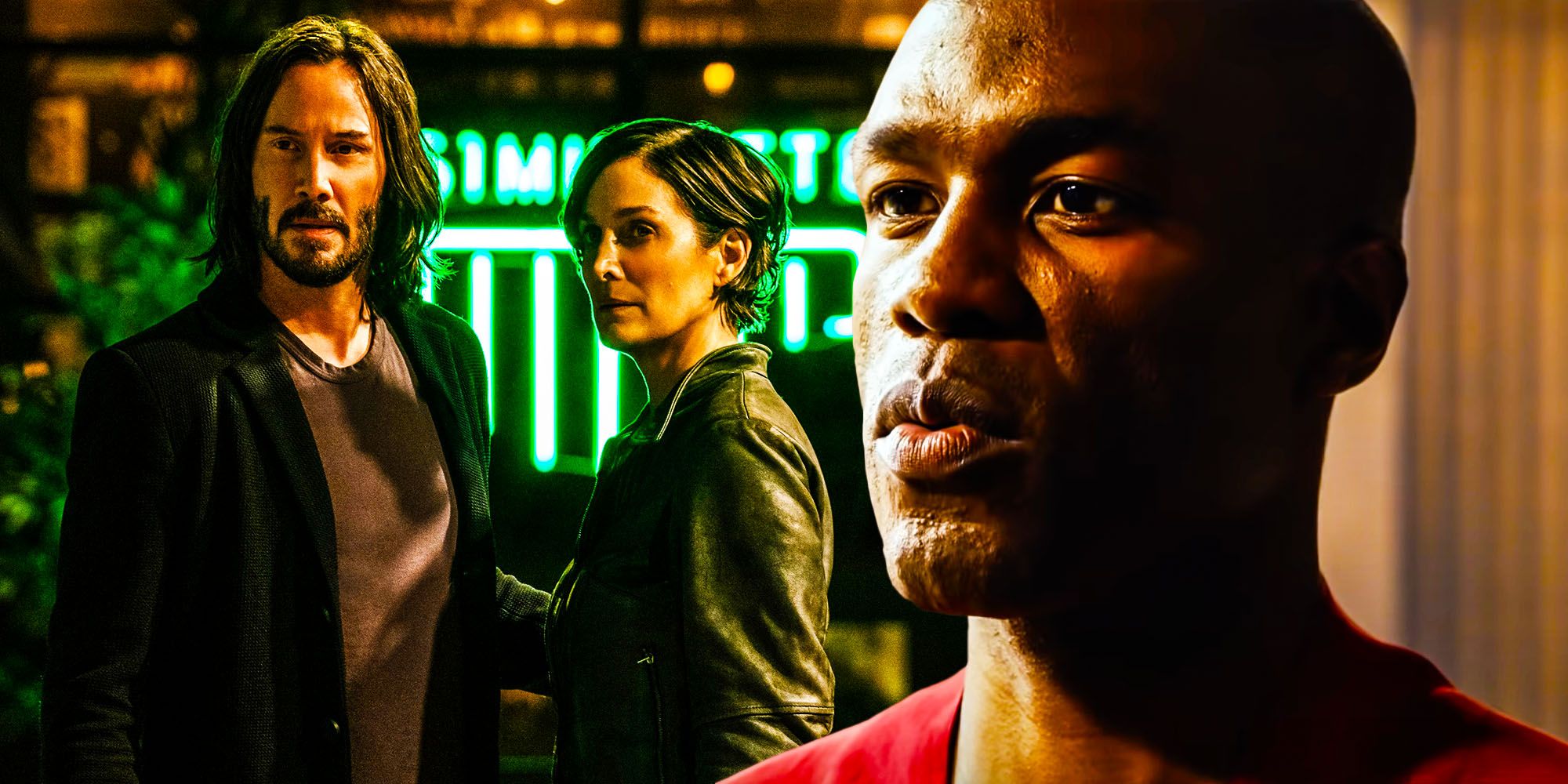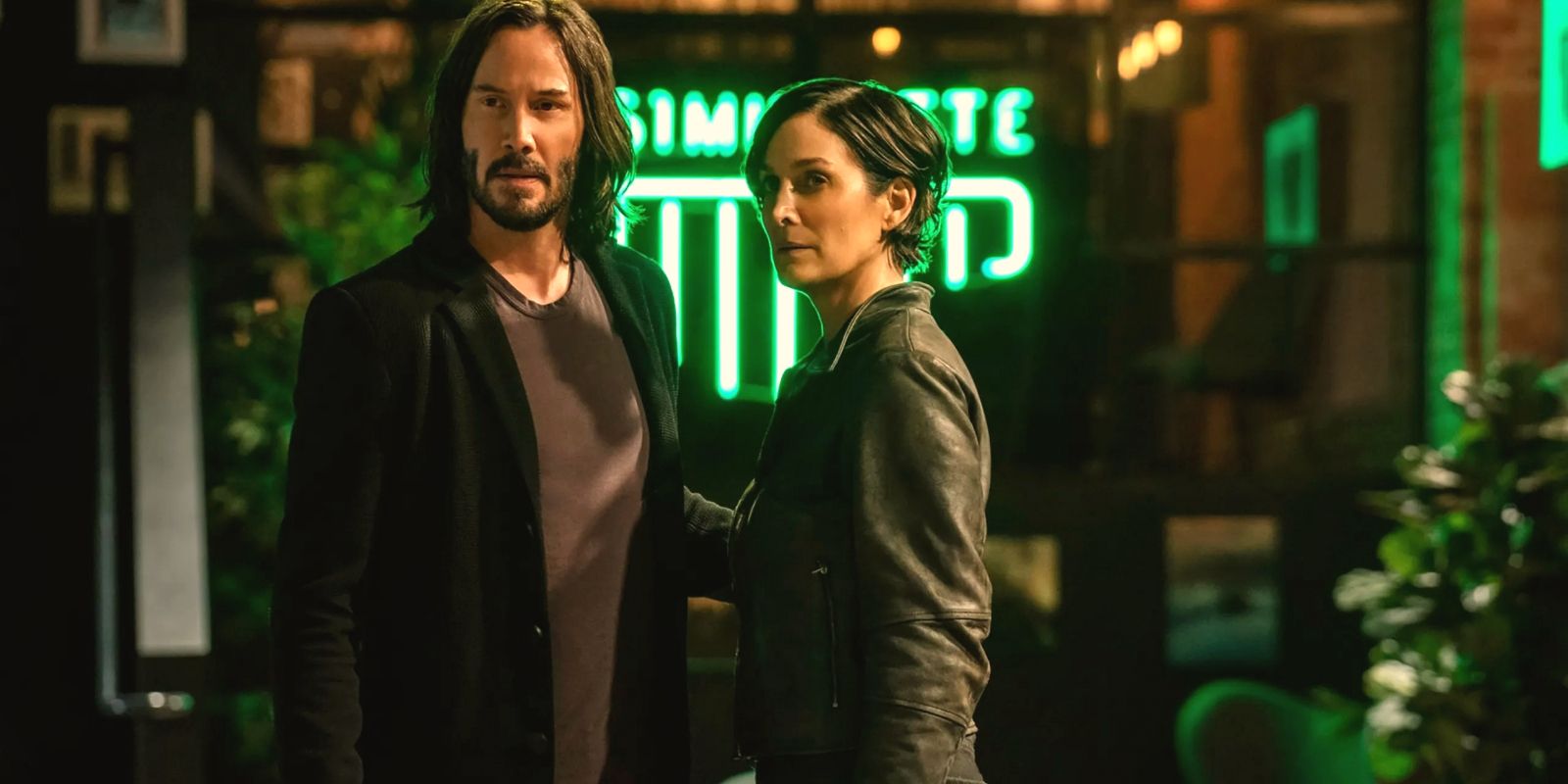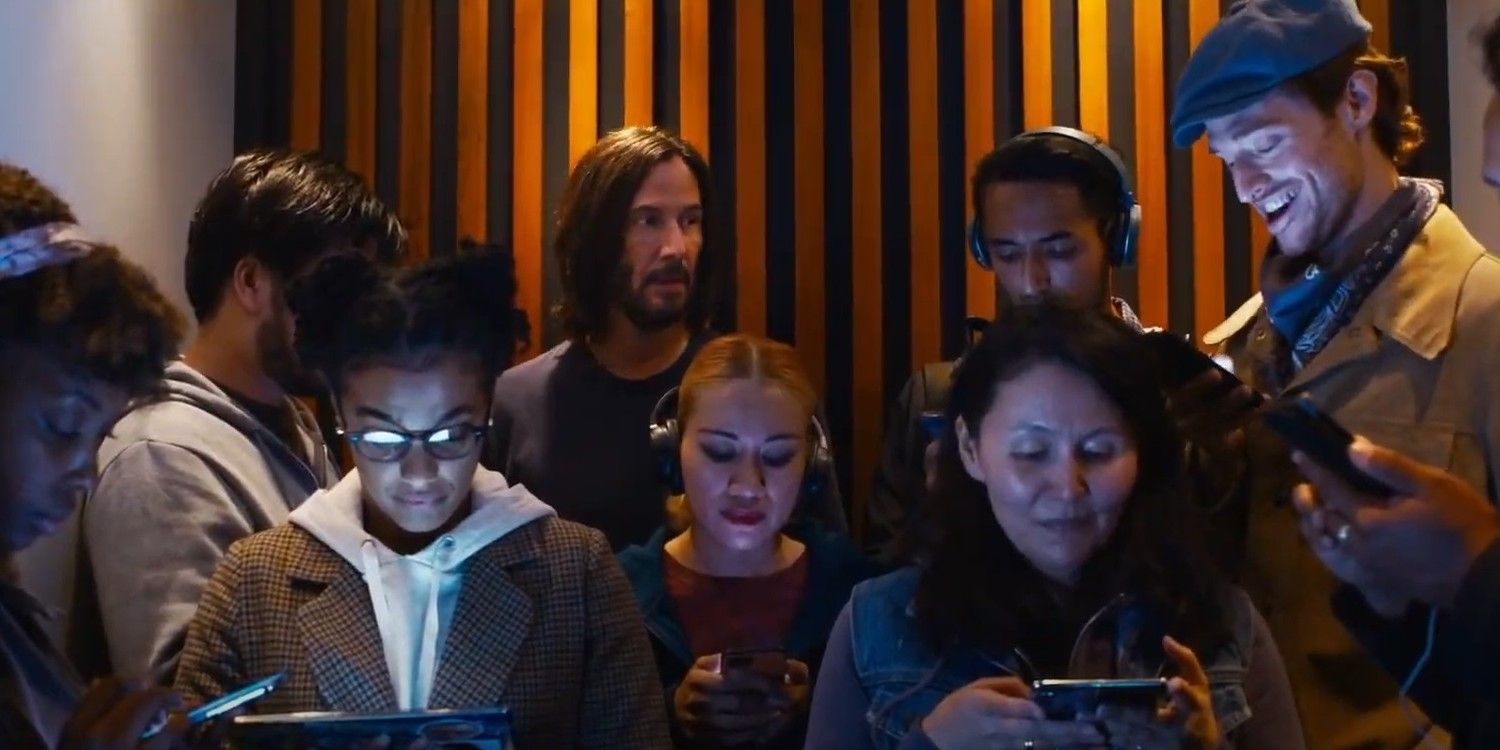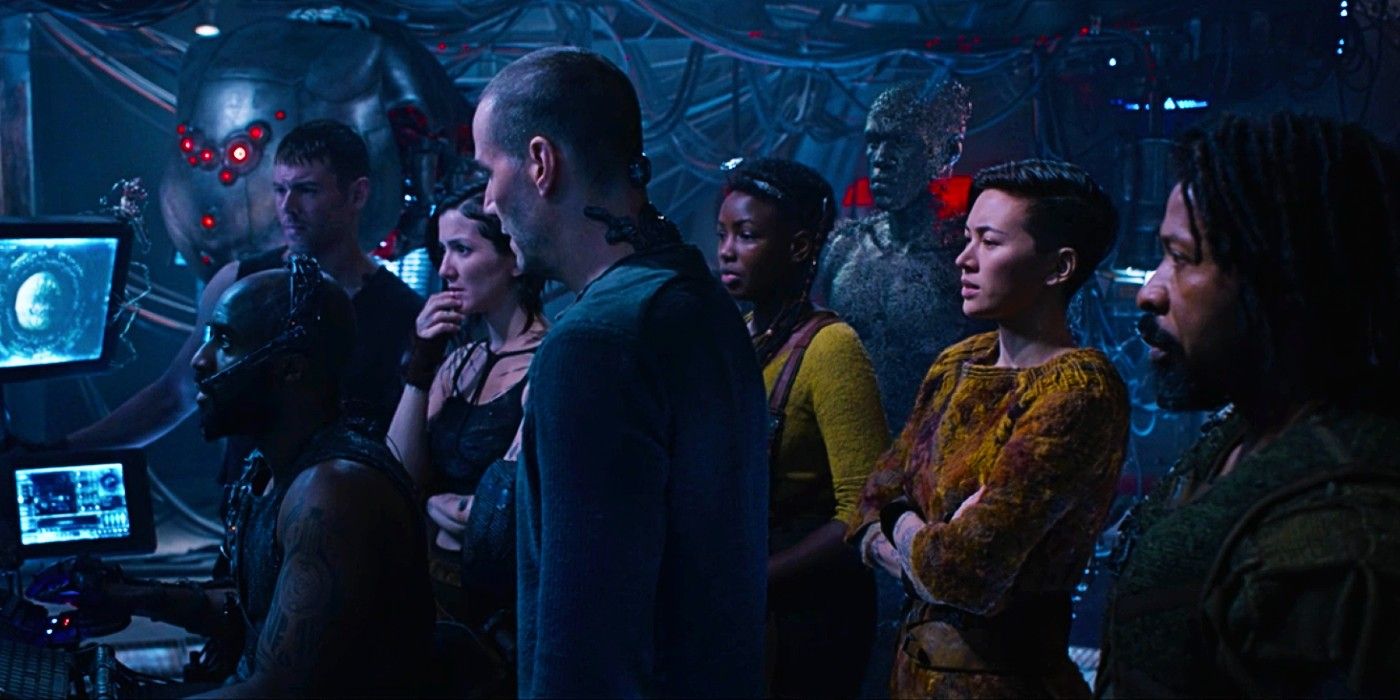Warning: Spoilers for The Matrix Resurrections ahead.
After 18 years, The Matrix Resurrections has hit theaters and HBO Max, and its thematic meaning is every bit as dense and philosophical as the original trilogy. A shining pinnacle of pop culture's long-lasting fascination with the cyberpunk genre, The Matrix is widely considered to be one of the best science-fiction movies ever made. The film put the Wachowskis on the map as bombastic blockbuster filmmakers, catapulting the career of Carrie-Anne Moss to new heights while also reinvigorating the screen presence of both Laurence Fishburne and Keanu Reeves.
When rumors first began circulating that Warner Bros. wanted to return to the world of the Matrix, many were understandably curious as to what form it would take. Director Lana Wachowski (one-half of the directing duo that birthed the original series) has said that the decision to direct The Matrix Resurrections came after the unfortunate passing of her parents and that resurrecting central characters Neo and Trinity were analogous to a form of art therapy. The return of these characters, as well as Yahya Abdul-Mateen II's unique re-imagining of Morpheus, left audiences wondering whether or not the film would be a sequel, reboot, or remake.
The answer, in typical Matrix fashion, ended up being all three, as The Matrix Resurrections ended up being a meta-textual deconstruction of the franchise, in which Neo is reinserted into the simulation as a video game designer who believes that he created the events of the original Matrix trilogy as a video game. This naturally opens the door up for all sorts of complex interpretations of the film. At its core, though, it's a tried-and-true love story between Neo and Trinity, and a movie that champions the power of real, genuine human connection.
What The Matrix Resurrections Has To Say About Interpersonal Love
Even in the original trilogy, it's obvious that a driving force of the narrative is the love that is shared between Neo and Trinity. Both characters resurrect each other through sheer force of will at different points in the franchise. It's Neo's love for Trinity that allows him to break the rigorous, confining structure of the choice given to him by the Architect in The Matrix Reloaded.
This is a theme that The Matrix Resurrections doubles down on, and works directly into the narrative of the film. In the movie, it's explained that Neo and Trinity were always powerful when they were together, and Neo's ability to transcend the Matrix and unite the Machines and humanity only came about because of his love for Trinity. It's this connection that the Analyst exploits, spearheading the decision to resurrect Neo and Trinity after their deaths in The Matrix Revolutions, before reinserting them into the simulation and putting them in close enough proximity to manipulate their feelings for each other into energy that can be used to power the machines.
However, this decision serves as the Analyst's ultimate downfall in Matrix Resurrection's ending, as the love shared between Trinity and Neo is too powerful to be contained by the falsehoods of the Matrix. Neo's push for the survivors of Io to help him rescue Trinity from the simulation is precisely what allows them to defeat the Analyst. On top of that, when Neo and Trinity are both finally unshackled they're able to use their shared power to once again transcend the simulation and rewrite the current state of the Matrix. In the end, it's a simple but always effective message: Love conquers all.
Matrix Resurrections Explores Our Unhealthy Obsession With Nostalgia
The opening 30 minutes of The Matrix Resurrections drops viewers smack dab in the middle of the inner workings of corporate artistic culture, exploring the faux-reality of a video game company tasked with creating a sequel to the original Matrix trilogy. This is arguably one of the most meta sequences ever done in the entire franchise, and it features an extended montage sequence set to White Rabbit in which multiple different people explore the meaning of the original Matrix trilogy. From an anti-capitalist interpretation of the Matrix movies to an allegory for the trans experience, The Matrix franchise means a lot of different things to a lot of different people. Still, the heart of the scene is a rather cynical one: All of these personal interpretations are in service of a nefarious purpose - the continued survival of an exploitative simulation preying on the very people who care the most about the film.
It's a deeply nefarious trap, and one that suggests a dire state of existence for artistic ventures in the real world. It's public knowledge that Warner Bros. originally planned to make The Matrix Resurrections without the Wachowski sisters. As such, the scene reads as a damning condemnation of the practice of exploiting resting franchises for the sake of creative bankrupt cash grabs But the situation is arguably bigger than Warner Bros. and The Matrix - Hollywood is stuck in a constant loop of digging up classic franchises in an effort to manufacture an easy artificial emotional response in audiences, at a time where it seems like genuine empathy for each other is sorely lacking. Particularly in the past few years, one couldn't be blamed for looking about and believing that people care more about what happens to fictional characters than to other human beings in the real world. In that sense, The Matrix 4 serves as a skewering indictment of how nostalgia culture has replaced empathetic immersion in reality.
Is The Matrix Resurrections Ultimately Hopeful Or Cynical About Humanity?
In a franchise that takes place inside a fake simulation, itself existing in The Matrix's dystopian Machine City controlled by inhuman machines, it's easy to see how one could read the series as deeply cynical. It's certainly reasonable to believe that of the fourth installment, which features a scathing indictment of the current state of pop culture, pointing a damning finger at our obsession with cheap comfort culture and the ways that massive corporations exploit our attachment to art. But at the heart of The Matrix Resurrections is a deeply hopeful story, one that champions the transcendent power of love in the face of a society that has seemingly abandoned itself to the whims of those in power.
At the end of the day, Neo's love for Trinity is what allows the two of them to unlock the pinnacle of what it means to be The Matrix's The One, and as a result, they're able to defeat the Analyst and remake the Matrix as they see fit. In a world that feels darker and more desperate every day, the ultimate message of The Matrix Resurrections is that there's no stronger force on Earth than humankind's genuine love for each other. It's a power that would allow the audiences watching the fake reality of the movie to reshape society's very foundations if they tried hard enough.




